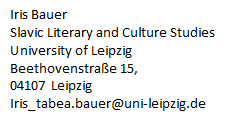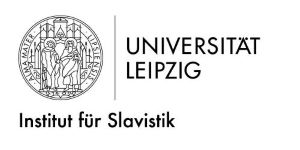Call for Papers: The Fiction of Auto/biography. New Perspectives on the Ambiguity of Life Writing/Reading


The Fiction of Auto/biography. New Perspectives on the Ambiguity of Life Writing/Reading
Auto/biography is determined by its ambiguity. The double character of auto/biographical writing (and reading) lays in the concurrence of factualizing life and simultaneously fictionalizing it through narration. As Judith Butler puts it in Giving an Account of Oneself (2005), the origin of oneself can be told as many different stories, so that every genealogy is a possible narration, but none of those can be assumed to be the only true one. (Butler 2005, 10) Through narration every writing of oneself becomes to a certain degree fictionalized and that’s way there is no autobiographical truth, but referentiality. (Tippner/Laferl 2016, 10f) Auto/biographical writing is in particular and by definition situated in between the individual and the collective because the referentiality is focused through the factual pact. This referentiality concerns not only writing but also reading. The particular promise of referentiality in the »paratext« (Gérard Genette) shapes writing and reading of auto/biographic texts. On the one hand the text produces the life of a person as history and on the other hand auto/biographies are cultural texts, which produce the offer of »Allo-Identification« (Nancy Miller). As didactic means they produce »ideal biographies« (Michail Bachtin) which intend to help the reader to understand the complexity of life and history through identification. (Tippner/Laferl 2016, 13)
With this number of Czytanie literatury we want to focus the ambiguity of the genre in the context of social discourse and literature, describe the conflict of factualizing literature and fictionalizing life on the basis of contemporary phenomena. Although the ambiguity of auto/biographies is nothing new, we seek an update of the well-known discussion related to the alleged »death of the author« (Roland Barthes) and its rebirth mainly through postmodern studies in the field of sociology and gender studies. With this number we want to focus new approaches and transgressions of the genre, which challenge the discourse of auto/biography and enrich it with critical perspectives.
1. Disguised fictional & factual pacts
The discourse of the referentiality of (life) writing has been challenged lately e.g. by the accusation of the singer of the band Rammstein of raping women. It was revealed that he systematically drugged female visitors of his concerts after the show to rape them being unconsciousness. The fictional pact of his poems and lyrics emerged as deceptive: his writing and singing is nothing but a description of his acting. The fictional pact appears as strategy of transgression what leads us to the question where the freedom of fiction ends. Another (less tragic) prominent example for a disguised pact occurred in 2016, when the identity of the Italian author behind the pseudonym Elena Ferrante was revealed. Elena Ferrante is the real author and translator Anita Raja. Whereas Ferrante/Raja proclaims in the tradition of author-critical positions that the text doesn’t need the author, the unveiling of her pseudonym showed that the general public in opposite desires the identity of the author. (Franzen 2023) In times of celebrity culture and name economy the fictional pact of Ferrante’s novels seemed not to be enough to protect from autobiographical readings, which Ferrante wanted to avoid. (Franzen 2023) In opposite to scientific approach, non-academic readers do not care about the autonomy of arts that much: When factual or auto/biographical reading is possible, this possibility is chosen by them.
2. Writing auto/biographies as cultural/ideological texts
The second area of interest comes back to the first assumptions. When writing auto/biographies can mean to write life in terms of using auto/biographies to create a narrative beyond the singular biography, the motivation of this writing is brought into focus. Which culture should be represented by »ideal biographies«? Whose culture should »Allo-Identification« serve, especially in the era of migration, globalization and transnational identities? Whether and to what extent does autobiographical writing adapt to the challenges of post-national realities?
In the context of ideological and political incorporation of auto/biographies we focus especially on the field of literature. In the case of Maria Komornicka_Piotr Odmieniec Włast (1876-1949), being one of the most explosive transgender authors of Polish discourse, the discussion of the extraordinary biography seems to cover the literary production of the author and to contaminate the lecture, also the academic one. The question is, how to deal with the motivation of writing & reading life in terms of ideological imprint (even emancipative)?
3. New forms of life writing
Also connected to contemporary culture and in particular to the possibilities of representation in new media are new forms of giving an account of oneself. Life Writing gained new areas as for example forms of collective authorship, »heterobiographies« (Philippe Lejeune) and new strategies and mediums of productions of self-/images in social media. Whereas collective authorship of life writing is generating an hybridization of the genre and at the same time a challenge to it, new channels of media produce new forms of life writing like short videos on Instagram or TikTok or online blogs etc. All of these forms require the redefinition of concepts such as auto/biographical truth, authenticity or authorship, as well as rethinking the relationship between the category of auto/biography and those of performativity or artistic creation. Of particular interest in this context is the ability to constantly rewrite and improve one's own image, often in response to the expectations of the audience. In digital age a huge diversity of forms of life writing has conquered the field and asks for interdisciplinary academic research. Questions of the narration of life writing are replenished with non-textual phenomena.
For the number of Czytanie literatury we welcome paper proposals that deal with new questions about the theory and methodology of life writing and focus the named fields of interest. Possible topics may take a close look at:
- Pseudonyms in the field of auto/biography
- Disguised fictional or factual pacts in literature
- The ambivalence of the freedom of arts in digital age and cancel culture
- Examples of authors whose biographies dominate the reception of their literature strikingly
- The phenomenon of correcting the biographies of famous people by their biographers
- Auto/biographies in the context of cultural imprint and celebrity culture
Proposals comprising an abstract should be sent to iris_tabea.bauer@uni-leipzig.de or anita.jarzyna@uni.lodz.pl by December 31, 2023. Deadline for submitting completed manuscripts – in English or Polish – March 31, 2024.





